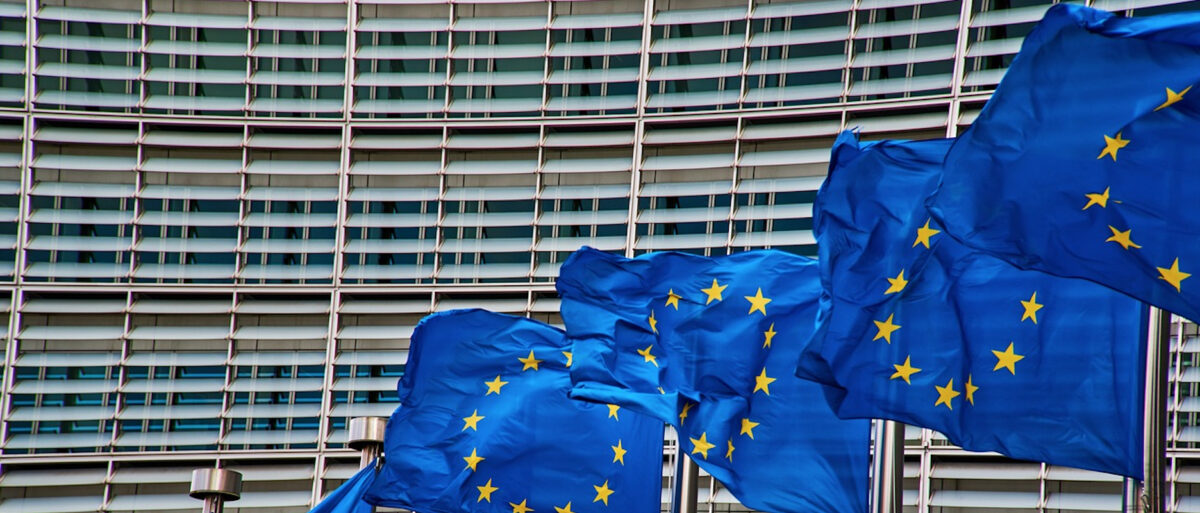Vision for 2050: A Decarbonised, Just, and Thriving Europe
Imagine the year 2050. Across Europe, people are enjoying a higher quality of life for longer than ever before, without compromising the well-being of others, neither globally nor of future generations. Europe has emerged as a strong, peaceful and cohesive entity, defined by social equity, shared prosperity, and international collaboration.
Europe has successfully transitioned to a carbon-neutral energy system, leaving the fossil fuel era behind. Every person in f Europe now has sufficient and reliable access to renewable and sustainable energy for electricity, heating, cooling, and mobility. The impacts of Europe’s transition are not detrimental to the Global South, as global justice is addressed in the political decisions. Although electricity demand had risen initially due to stronger electrification as a consequence of phasing out fossil fuels, it has been stabilized. By intelligently harnessing its own renewable resources, Europe is self-sufficient and no longer relying on energy imports.
Economic development has been decoupled from resource use and environmental degradation, ensuring that no person or place has been left behind. A new definition of prosperity, focused on the common good and sufficiency, has gained prominence within the population, the business sector and the policy-makers. High-quality employment is accessible to all, supported by a fair tax and social security system that ensures sufficient income to meet everyone’s needs and helps them to find a decent job matching their abilities.
Social equity has been enhanced, increasing resilience among vulnerable groups and creating new opportunities for all. This has improved the quality of life for people with lower incomes, while maintaining a high standard of living for all. Inequalities have been reduced through a more equitable distribution of economic resources and in terms environmental, educational and health outcomes, supported by a societal shift towards sustainability and sufficiency. People previously employed in high-carbon industries are finding support through comprehensive programs that ensure dignified pathways to sustainable employment. Thoughtfully designed compensation mechanisms and support systems are in place to protect lower-income households and vulnerable groups, promoting climate-friendly lifestyles accessible to all.
This transformation is supported by a profound shift in values and social norms. Material-intensive lifestyles have been replaced by those centred on intrinsic values such as community, self-acceptance, and personal growth. People prioritize fulfilling relationships, meaningful experiences, and personal development over the pursuit of material possessions or resource-intensive habits. With support from policies and structural framework conditions that promote sustainable choices, high-impact lifestyles have diminished, making room for innovative, low-impact alternatives, which earn widespread respect and social reputation. Sustainable living is now embraced as a positive, desirable choice that harmonizes personal well-being with collective environmental health.
At the societal level, this mind shift is reflected in a collective commitment to a sustainable, inclusive, and environmentally conscious future and a deep understanding of the interplay between a decarbonized economy and societal well-being. Technological innovation, including artificial intelligence is harnessed and regulated for the benefit of these goals, to support fair access to services, amplify social equity, and drive just outcomes.
This success is anchored in participatory democracy and broad cooperation across sectors. Diverse groups actively contribute to shaping the future, with necessary skills and knowledge for democratic participation widely cultivated across society. This broad engagement has significantly reduced social polarization fostering resilience and cohesion within communities. Increased transparency, inclusivity, and accessible information have strengthened trust in democratic institutions and confidence in their commitment to a just society and the common good.
A prerequisite for this transformation was a transparent and accountable governance system, with public bodies and authorities having the necessary capacities to implement and sustain new structures and policies. Climate change mitigation and adaptation measures are fully integrated into national policies and planning. The principle of subsidiarity ensures that decisions are made locally, respecting national and regional diversity while reducing power imbalances.
Local communities have become increasingly self-sufficient in energy provision and circular economy practices, and they enjoy comprehensive social protection for all, including children, the disabled, and the elderly. Their resilience – their capacity to cope with hazardous events, disturbances and others resulting from climate change, but also accompanying effects (ecosystem loss, social disruption, ….) and that of their inhabitants has been increased.
The migration trend from rural areas and small to medium-sized cities to metropolitan areas has been reversed, ensuring widespread access to culture, employment, education, and mobility. The relationship between urban and rural communities is harmonious, fostering maximum liveability and sustainable development.
This vision is based on some implicit, yet very important assumptions. The form of state needed is a liberal democracy with a functioning rule of law, governmental institutions with sufficient capacities, and the buy-in of the society (thus no strong resistance) of the society for this vision.
We also recognize that achieving a just transition requires more than supporting individual groups. Only by dismantling systemic barriers, redistributing power and resources, and challenging entrenched inequalities a society can be built that truly serves the common good and upholds justice for all.

